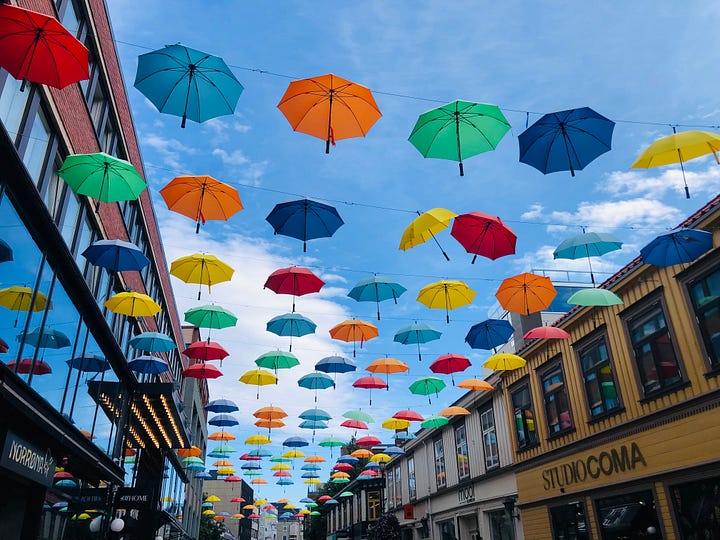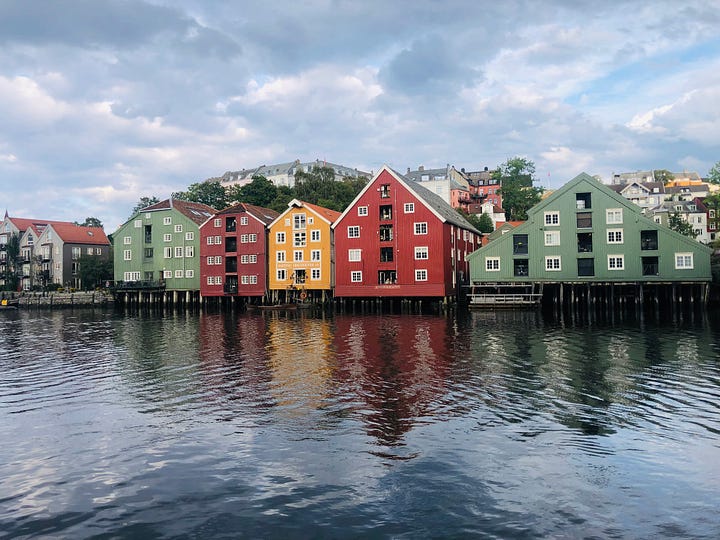Scammed on holiday by fake booking dot com X accounts - another travel tax and a hidden fee in the exhilarating school of life?
Going nowhere guarantees no mishaps. But staying at home ensures no wild adventures either. It was a brilliant trip to Norway despite an unexpected blip on the radar.
Some people go on holiday and come back tired but refreshed, feeling like a million dollars. On Monday I came back from my ten-day holiday in Norway exhausted, minus £325 which I should have still had - and then started doing research on how to contact Interpol.
This is despite having had such a brilliant time for the rest of last week in Oslo after I was targeted by fake booking dot com scammers on X and losing this from a bank account.
It could have been much worse.
There’s a price for travelling, which is a privilege I constantly remind myself. Getting scammed was another unexpected travel tax and a hidden fee in the exhilarating school of life.
But going nowhere guarantees no mishaps. You could go only go outside your front door and a tree falls on you. Staying at home of course ensures no wild adventures either. Isn't that the real price of experiencing the world, a constant teeter-totter between exhilaration and trepidation?
I’d be lying though if I said I didn’t feel a bit down as I was trying to fill in a report for Action Fraud on Monday. This was partly because it took a few hours to do it and time is a precious commodity for a freelancer. Like money, it’s a dwindling resource and filing police reports suck it dry.
Getting mugged in Uganda in late 2022 and losing both my passports, UK visa, other forms of ID and more and having to go home to Australia to get it all replaced set me back by six months. I lost days of my life working on all the documentation - a process a friend in Cape Town pointed out to me when I was doing it was “designed to make you give up”.
So yes part of me did have a little pity party moment where I thought not me again. If these are the worse things that ever happen to me however, I’m lucky.




These experience have made me think about the loss of time and the emotional tax that must come with high level fraud.
I will write more later about what happened later but according to one report booking dot com themselves have said that scams could skyrocket by as much as 900% this year! Please beware. There’s two articles on it that you can read here:
https://brothke.medium.com/when-booking-com-becomes-booking-scam-9ae605a12790
https://blog.bushidotoken.net/2023/05/greenmwizi-kenyan-scamming-campaign.html
In the end I was told by the police in UK to contact Action Fraud and I submitted a report to them.
Unsurprisingly, both booking dot com and X are doing very little to prevent booking dot com users from being scammed. Yet some of the accounts that targeted me are not glaringly fake. One has a similar logo to the booking dot come one . I don’t think it means much that it’s not verified these days given that X is such a mess and many people are choosing not to be verified.
Nor did I think at the time that it was weird that booking dot com had people working for them in Kenya, because after all so many big companies outsource. It was also about midnight when I’d asked for help on X. I was tired and I just needed to get a refund for my hotel booking that had fallen through (I will explain later) and find accommodation for the rest of the week.
These platforms are also stealing the profile photos of professionals - a US marketing executive, a Thai Airways boss and and bizarrely, a Tory party MP - and using them on X, another way which makes them appear genuine. The people who the photos belong to are of course none the wiser.
Even after reporting some of them several times on X the platform still has not taken them down. Again, it’s probably time to leave social media.
Meanwhile booking dot com, who have attracted criticism from other scam victims, wouldn’t even tell me whether they had reported the account impersonating themselves. Nor did I receive any reply when I informed them that another had even impersonated me.
These two experiences, getting mugged then getting scammed, have also made me think about glossing over holiday horror stories presenting only the polished, Insta-worthy versions of adventures vs telling the truth.
Several years ago I remember meeting up with a friend in London who I’ve since lost touch with. She’d just come back from a trip with a mate.
Towards the end of it they both got sick. But they posted two different social media narratives of that holiday. The then friend who I was having a coffee with couldn’t believe that her travelling buddy hadn’t put up one single mention of the disaster on Facebook, pretending that the trip had been perfect. She’d been so honest.
“Holiday horror” tales might not be the most popular genre of travel writing but they do exist, mostly framed as it could have been be so much worse. Have a look at the first few pages of Google when you types these words into it and indeed you might feel better.
There’s the a woman who butchered her right leg in Bali, another held at gunpoint in Mexico and a woman (in the Mail of course) who lost a camel although sadly I can’t access the full story.
So a scam on booking dot com in the scheme of things is boring but I’m thankful for dull sometimes.
If I cast my memory back really far my most worst holiday horror tale was getting head lice just as I was in a car with some strangers on the way back from a Machu Picchu tour in 2006. I’d spent the past few months at a children’s home in Bolivia. (Disclaimer: the latter also something I’d never do again. That and get nits).
Did I own up to this on social media? No because we didn’t have it at the time. Would I have owned up to it on social media: unsure. There would have been the humiliation. But then there would have been the laughs. This was before the term “clickbait” was coined, though.
When I got mugged in Uganda, I posted in on X mostly because I wanted to catch the thieves. So many Ugandans, the kindest people in the world, reposted it. Okay, occasionally there’s a point to social media.
But I never got them.
I’d be lying however if I didn’t admit there was a tiny part of me that felt ashamed even though getting robbed there or anywhere for that fact is common.
For the large part however, pretending things are great when they’re not involves acting 24/7 and I’m not a very good actor because it’s exhausting.



So I’m more than happy to say: I got scammed on my holiday. But I still had a great time. Sometimes you just have to get on with things and not let the bastards win.
I didn’t get the thieves in Uganda. But I will get the fake booking dot com scammers in Kenya and elsewhere.
Updated 11.9.24: After first notifying them a couple of weeks ago about these scam accounts, booking dot com have finally flagged some up after I caught one of the users who scammed me back online.






Happy birthdays!